第196章
A fifth ill effect of the exclusion would be, that it would operate as a constitutional interdiction of stability in the administration. By necessitating a change of men, in the first office of the nation, it would necessitate a mutability of measures. It is not generally to be expected, that men will vary and measures remain uniform. The contrary is the usual course of things. And we need not be apprehensive that there will be too much stability, while there is even the option of changing; nor need we desire to prohibit the people from continuing their confidence where they think it may be safely placed, and where, by constancy on their part, they may obviate the fatal inconveniences of fluctuating councils and a variable policy.
These are some of the disadvantages which would flow from the principle of exclusion. They apply most forcibly to the scheme of a perpetual exclusion; but when we consider that even a partial exclusion would always render the readmission of the person a remote and precarious object, the observations which have been made will apply nearly as fully to one case as to the other.
What are the advantages promised to counterbalance these disadvantages?
They are represented to be: 1st, greater independence in the magistrate;
2d, greater security to the people. Unless the exclusion be perpetual, there will be no pretense to infer the first advantage. But even in that case, may he have no object beyond his present station, to which he may sacrifice his independence? May he have no connections, no friends, for whom he may sacrifice it? May he not be less willing by a firm conduct, to make personal enemies, when he acts under the impression that a time is fast approaching, on the arrival of which he not only MAY, but MUST, be exposed to their resentments, upon an equal, perhaps upon an inferior, footing? It is not an easy point to determine whether his independence would be most promoted or impaired by such an arrangement.
As to the second supposed advantage, there is still greater reason to entertain doubts concerning it. If the exclusion were to be perpetual, a man of irregular ambition, of whom alone there could be reason in any case to entertain apprehension, would, with infinite reluctance, yield to the necessity of taking his leave forever of a post in which his passion for power and pre-eminence had acquired the force of habit. And if he had been fortunate or adroit enough to conciliate the good-will of the people, he might induce them to consider as a very odious and unjustifiable restraint upon themselves, a provision which was calculated to debar them of the right of giving a fresh proof of their attachment to a favorite. There may be conceived circumstances in which this disgust of the people, seconding the thwarted ambition of such a favorite, might occasion greater danger to liberty, than could ever reasonably be dreaded from the possibility of a perpetuation in office, by the voluntary suffrages of the community, exercising a constitutional privilege.
There is an excess of refinement in the idea of disabling the people to continue in office men who had entitled themselves, in their opinion, to approbation and confidence; the advantages of which are at best speculative and equivocal, and are overbalanced by disadvantages far more certain and decisive.
PUBLIUS
____